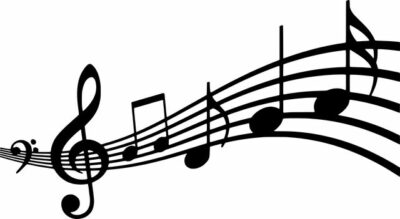Music to Our Brains
Background
Music activates all parts of the brain: parts of the brain involved with emotion, the motor system, and the auditory cortex. If parts of the brain/body are not being used often, neurons may be “rewired” to do different tasks, causing you to weaken that system. Therefore, by activating all parts of the brain, we are working out our brain and keeping it in shape.
Effects of Music
Music helps move us along through long days. Listening to music can actually help connect the left and right halves of your brain by increasing the production of white matter. Ultimately, the white matter enables logic and creativity to work together more seamlessly.
Playing a musical instrument is just as beneficial. As you repeat certain motions during practice, you improve your motor skills. Behind the scenes, by reading and creating music, you can improve your reasoning skills. Overall, music can be very therapeutic.
Brainwave States
Our ability to focus depends on our mindset — our brain has built-in “gears” that allow us to correctly approach tasks.
- Delta (0.1-4Hz): Deep sleep and pain-relief
- Theta (4-8Hz): Deep relaxation, meditation, and creativity
- Alpha (8-13Hz): Relaxed focus and fast learning
- Beta (13-30Hz): Problem-solving and focused attention
- Gamma (30Hz and above): Peak awareness and memory recall
Recently, LoFi music has been coined as “study music.” LoFi music is believed to simulate theta waves (4-8Hz) which can improve performance on sequencing tasks. A deficiency of these waves may result in learning disabilities and attention issues.

Relaxation
Your nervous system releases a hormone called cortisol in response to stress. While it is not guaranteed music will help you return to a non-stress state quicker, studies have shown nature sounds have a higher chance of doing so. Low-frequency sounds are in the “theta” and “delta” states which aid in relaxation and improve sleep. Have you wondered why nature sounds are calming? Nature sounds contain low frequencies which is why some intelligent speakers recommend it as “sleep music.”
Listen Up
Explore some of these resources to find new music that can help boost your productivity.
Summary
| Practice | Benefits |
|---|---|
| Listening to Music |
|
| Playing an Instrument |
|
| Listening to LoFi |
|
| Listening to Nature Sounds |
|
Sources:
Balance on Buffalo. “Top 10 Benefits of Sound Therapy.” Balance on Buffalo, www.balanceonbuffalo.com/blog/top-ten-benefits-of-sound-therapy.
Booth, Stephanie. “Brain Health With Binaural Beats.” Healthline, Healthline Media, 14 May 2019, www.healthline.com/health-news/your-brain-on-binaural-beats#The-illusion-of-binaural-beats.
Budson, Andrew E. “Why Is Music Good for the Brain?” Harvard Health, 7 Oct. 2020, www.health.harvard.edu/blog/why-is-music-good-for-the-brain-2020100721062.
Dean, Curtis. “8 Ways Listening to Music Helps The Brain.” DIFFERENT BRAINS, 5 July 2019, www.differentbrains.org/8-ways-listening-to-music-helps-the-brain/.
Jewell, Shannon L. “Does Playing Music Reduce Stress?” Can Music Reduce Stress? | Ask A Biologist, 13 June 2014, www.askabiologist.asu.edu/plosable/does-playing-music-reduce-stress.
Lutes, Brendan. “Lo Fi Music: A Secret to Focusing During Study Sessions.” Hyde School, 17 Nov. 2017, www.hyde.edu/blog/hyde_school_blog/lo-fi-music-a-secret-to-focusing-during-study-sessions/#:~:text=By%20listening%20to%20Lo%20Fi,something%20to%20work%20alongside%20with.
NeuroHealth . “The Science of Brainwaves – the Language of the Brain.” NeuroHealth Associates, www.nhahealth.com/brainwaves-the-language/#:~:text=The%20raw%20EEG%20has%20usually,)%20for%20%E2%80%9Cactive%E2%80%9D%20intelligence.
*This site content is provided for informational purposes only and does not intend to substitute professional medical advice, diagnosis, or treatment. If you have medical questions and/or concerns, please contact a medical professional.
